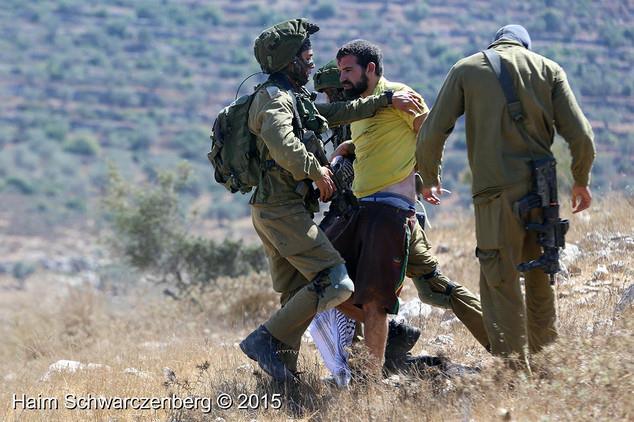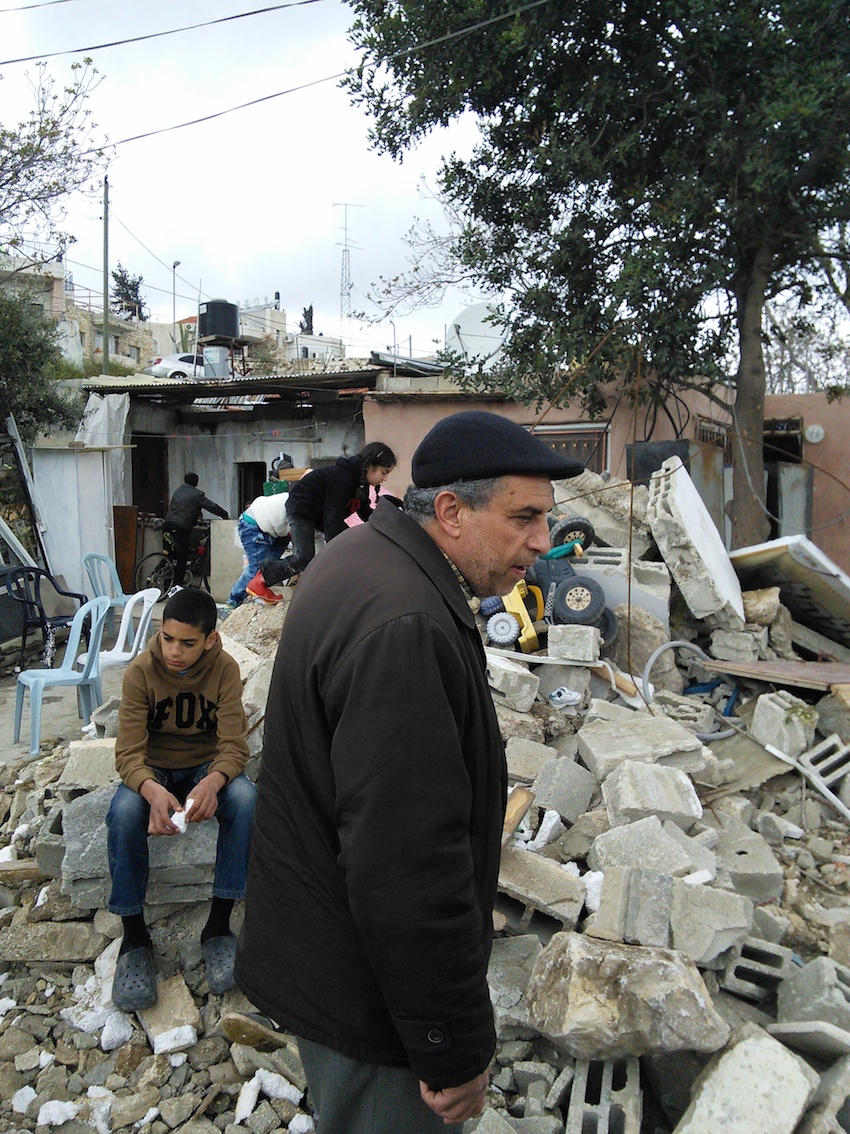Tag: Military violence
-
Italian activist arrested and beaten up in occupied Palestine
31st August | International Solidarity Movement, al-Khalil Team | Hebron, occupied Palestine Update 31-08-2015 20:00: Vittorio Feras court this morning again did not take any final decisions. It was ruled to release him on a 3000 shekel bill under the condition that he stay in Jerusalem and not leave the country until yet another court date on…
-
Israeli forces break the arm of a Palestinian man at peaceful protest, Beit Ummar
30th May 2015 | International Solidarity Movement, Khalil Team | Beit Ummar, Occupied Palestine Today in Beit Ummar, just north of Al Khalil (Hebron), Israeli forces broke the arm of local activist Yousif Abu Maria, and then arrested him. Yousif was protesting with a group of around 30 local Palestinian activists outside an illegal Israeli…
-
Home demolition in Jerusalem: “They want our land. We need help to protect it.”
1st April 2015 | Jerusalem, Occupied Palestine Nureddin Amro and his brother Sharif Amro and their families were awakened at 5:30 am by over a hundred Israeli soldiers who came to demolish their home in the Wadi Al-Joz neighborhood of occupied East Jerusalem on Tuesday, March 31, 2015. Both men are blind. The brothers live with their…



